Highlight01
1st floor grand parlor
Discovering Cultural Path
Display panels and videos show the views and history of the Cultural Path, and provide up-to-date information on the use of Cultural Path facilities as well as upcoming events, not to mention the activities of pertinent groups and organizations. Special exhibitions also help to make this a place to discover all sorts of hidden Cultural Path treasures.

-
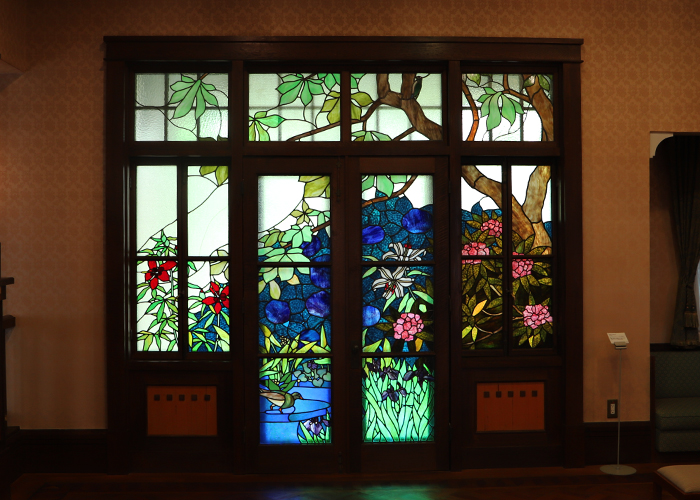
- Stained glass
Based on an original design by Hisui Sugiura, a famous designer at the time and Momosuke Fukuzawa's brother-in-law.
-
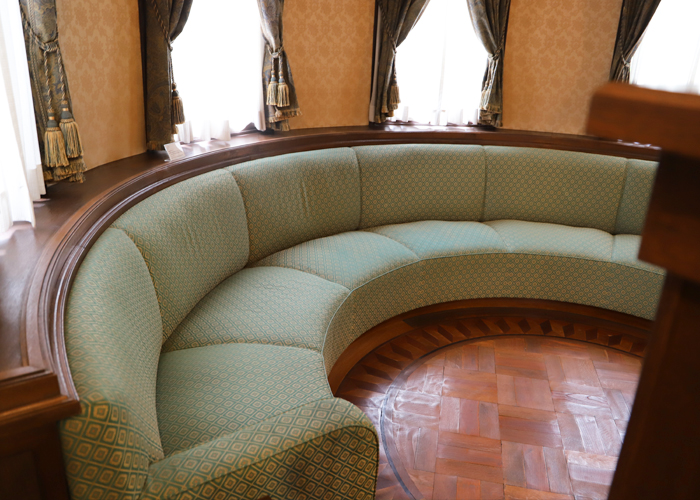
- Sofas
When the building was renovated, these sofas were used in other rooms. Upon restoration of the house, the sofas were disassembled, restored using materials and techniques faithful to those of the time they were built, and put back in their original rooms. The wood frames and springs of the sofas are the original items reused.
Highlight02
1st floor exhibition room 1, grand parlor
Sadayakko Kawakami: the woman that dazzled Picasso
The first exhibition room features display panels highlighting Sadayakko Kawakami's life, as well as a range of materials from her career as an actress.

-
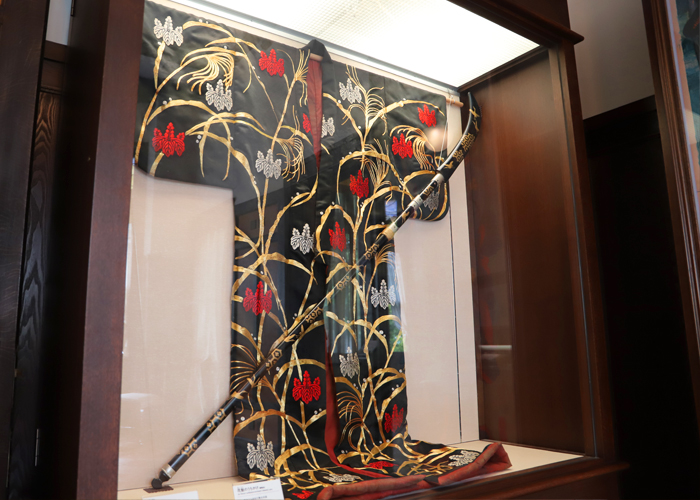
- Courtesan's costume and replica Naginata polesword
The only surviving examples of Kawakami's stage costumes and props she used on stage"Miyama-no-bijin".
-
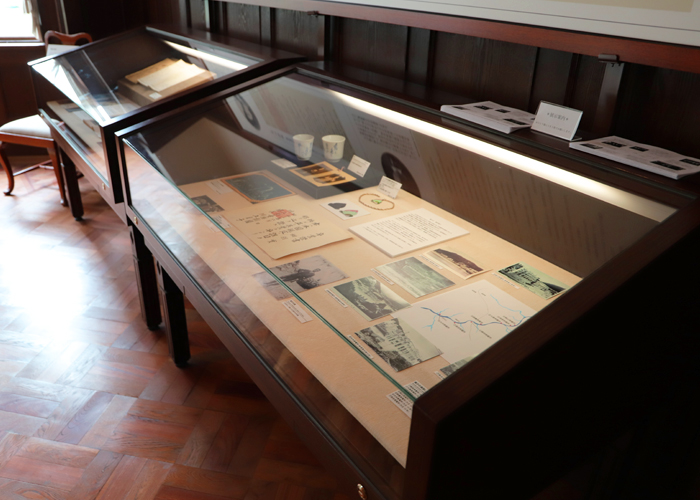
- Display case
Contains photos of Kawakami in Paris, play scripts, magazine and newspaper clippings and a sketch of Kawakami by a young Pablo Picasso.
-
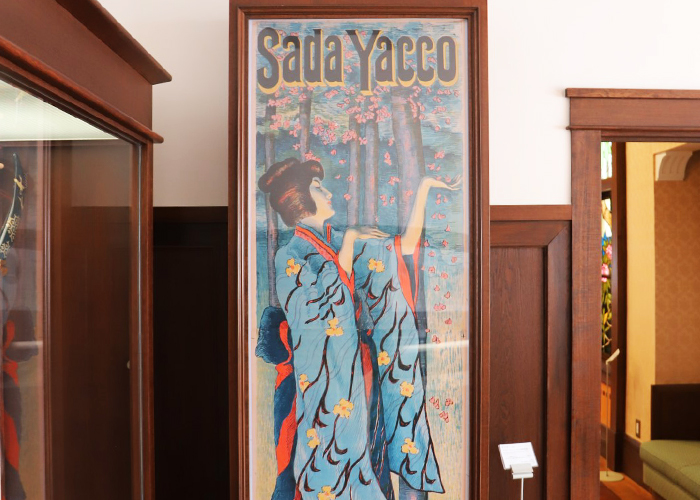
- Posters
Sada Yakko (featuring guest star Sadayakko Kawakami), a poster drawn by German artist Mueller in 1900.
Highlight03
1st floor exhibition rooms 2 through 4
Life a century ago
These Japanese-style rooms are exactly as they were when they were constructed, and the quality is such that this section of the building is registered as a tangible cultural property. Furnishings and fittings have been included to recreate the room as it was, allowing visitors a glimpse of the items that Sadayakko used on a daily basis.

-
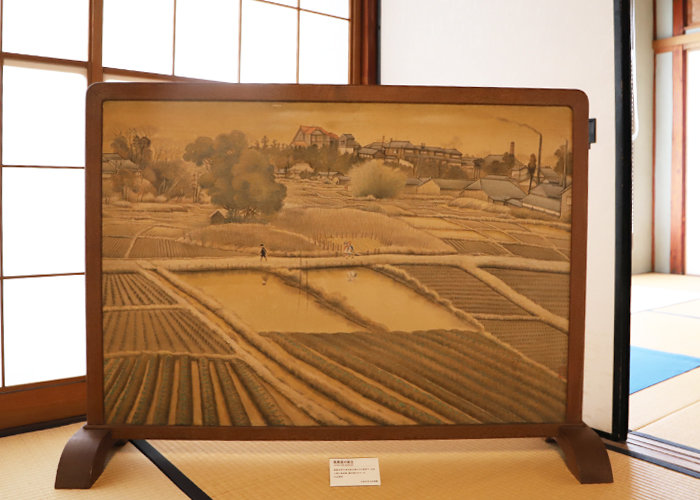
- Screen with landscape painting
The painting depicts the scene visible from the north of the Kawakami residence at the time it was originally built. The house is visible in the center.
-
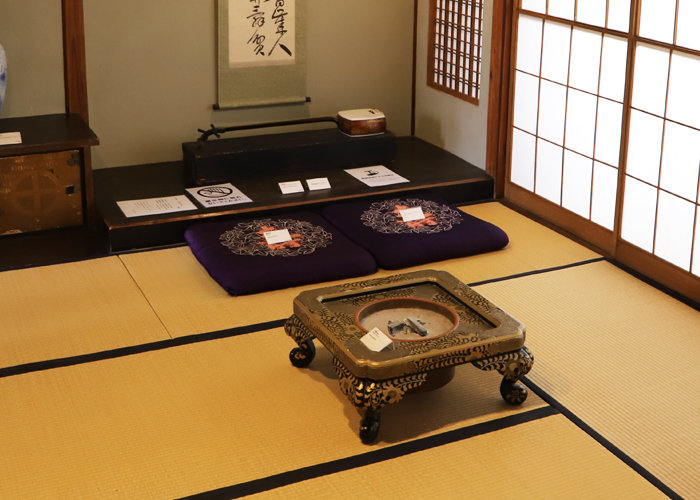
- Replica charcoal brazier, cushions, shamisen
Some of Kawakami's favorite items.
Highlight04
1st floor hallway, grand parlor
Post-restration
When restoring the building, which was originally designed by Japanese home-building specialists "Amerikaya", care was exercised to use the same materials (structural materials, stained glass, etc.) and methods as when the house was first erected wherever possible. Through display panels and exhibiting the original parts that have since been restored, visitors are able to get a real feel for the history of the building and the architectural methods of the time. The grand parlor has a video diary of the relocation and restoration.

-
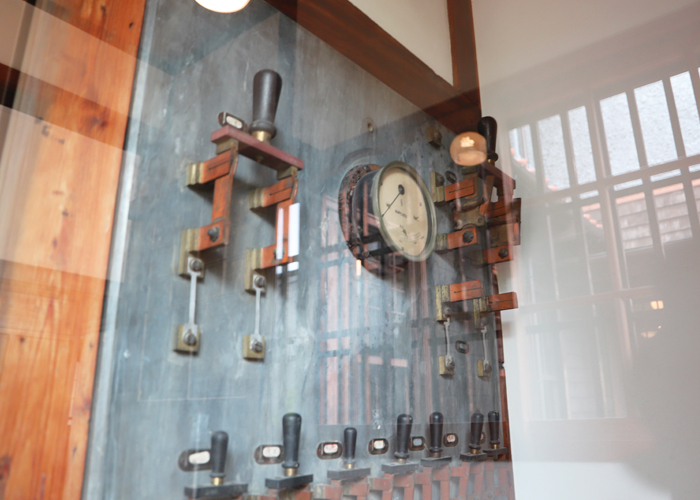
- Switchboard
This huge panel was made of marble.
-
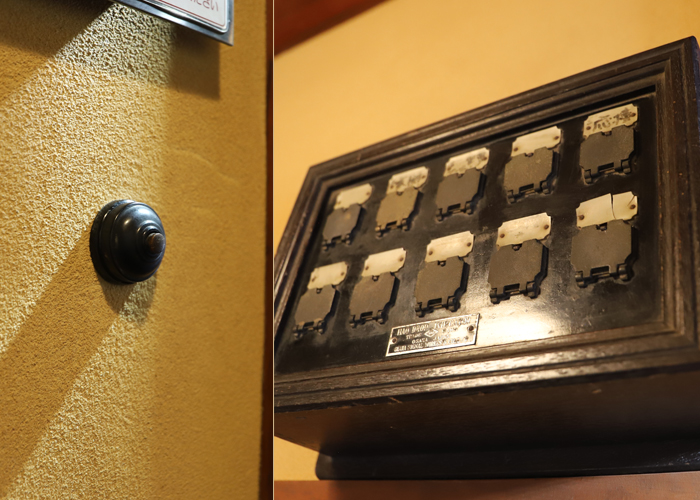
- Call bells and base unit
Bells were placed in all main rooms and the base unit was apparently located in the office. A press of a button would activate a bell and display a number to indicate which room's bell was being rung.

Local Literature Library
The museum is the only modern and contemporary literature archive in Nagoya City and is housed in the former residence of Sadayakko Kawakami, which was also part of the Kawakami Sadayakko residence. Since its opening, the museum has collected materials on literature related to its hometown, and has held exhibitions and events to promote the appeal of local literature and art.

Highlight05
2nd floor exhibition rooms 5 through 8
A virtual treasure trove of literature, these rooms feature materials and display panels outlining writers and literary works with close ties to Nagoya and its surrounding areas, including the writings of Naoki Award winner Saburo Shiroyama, Akutagawa Award laureate Tsuyoshi Kotani, Toshiko Tamura Award recipient Miyoshi Enatsu, Choku Award winner Ken Kasugai and one of the founders of modern Japanese literature, Shoyo Tsubouchi. There is also a retrospective look at the fanzines that abounded in the area at the time. Some of the materials are placed on bookshelves for visitors to touch and peruse at their leisure.




